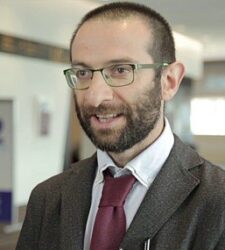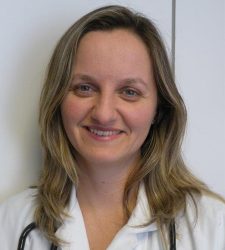Description
Geriatric oncologists have two main challenges:
- Selecting patients for specific treatments
- The delicate balance of prolonging their survival, whilst maintaining independence and quality of life.
Since older adults are under-represented in cancer clinical trials, producing evidence-based recommendations in everyday clinical practice remains challenging.
The Older Adult Council (OAC) is a think-tank established recently to actively promote clinical and translational research in older adults over 70 years old with cancer both within the EORTC and beyond. It will identify and define older adult research questions, address methodological questions (like frailty, quality of life, treatment toxicities, patient preferences….), support ongoing EORTC activity in this field and encourage the development and implementation of older adult research initiatives both nationally and internationally.
Main Achievements
The Elderly Minimal Dataset
A standardised Elderly Minimal Dataset (MinDS) to harmonise the collection of data relevant to the elderly and enable future cross-study and practice comparisons. All EORTC clinical trials now use the Elderly Minimal Dataset, in particular, G8 screening for patients who are more than 70 years old.
Contribution to the development of an elderly-specific quality of life assessment tool, the QLQ-ELD14 scale. This quality-of-life scale is already integrated in some studies of the elderly.
Methodology
A joint EORTC-Alliance-SIOG to write a position paper regarding the endpoints and trial design in geriatric oncology research.
Management of older patients
A joint alliance EORTC Elderly Task Force-Lung Cancer Group-International Society for Geriatric Oncology to write an expert’s opinion paper regarding the management of older patients with non-small-cell-lung cancer.
Outcome of the breast clinical trial with pertzumab and trasuzumab in older patients
Pertuzumab and trastuzumab with or without metronomic chemotherapy for older patients with hER-2positive metastatic breast cancer (EORTC 75111-10114): an open label, randomised, phase 2 trial from the Elderly Task Force/Breast Cancer Group.
Main objective of the study was to evaluate the efficacy of dual anti-HER2 treatment with or without metronomic chemotherapy in older and frail patients with HER2-positive metastatic breast cancer.
Outcome: in 2018, the results of this study showed that the addition of metronomic oral cyclophosphamide to trastuzumab plus pertuzumab led to an increased median progression-free survival by 7 months compared with dual HER2 blockade alone, with an acceptable safety profile.In 2022, the analysis based on a long term outcome data confirmed that this treatment is an active and relatively well tolerated treatment option with a median survival of over 3 years. Nevertheless, the majority of this older/frail population died from breast cancer, highlighting the need for well tolerated and efficacious treatments in these patients.
OAC - Chairs
-
 Chair
ChairPaolo Bossi
Azienda Socio Sanitaria Territoriale Degli Spedali Civili di Brescia
Brescia, Italy
-
 Chair
ChairLissandra Dal Lago
CHIREC
Brussels, Belgium

